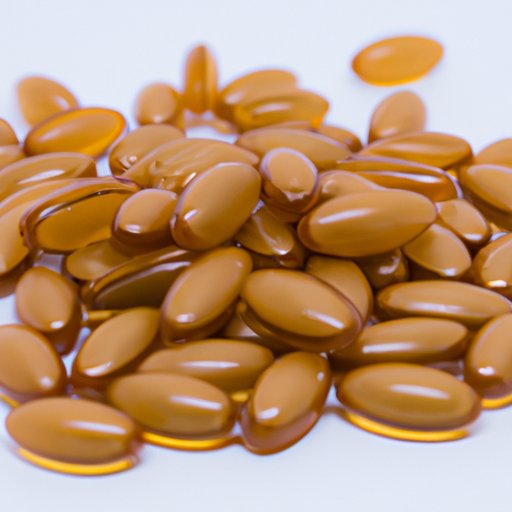
Introduction
Biotin, also known as vitamin H or B7, has been gaining popularity as a health supplement in recent years. This B vitamin is essential in maintaining overall health and wellness of the body, supporting healthy hair, skin, and nails, and even affecting mood and cognitive function. However, the confusion arises whether biotin is truly a B vitamin or just another health supplement fad. In this article, we will explore the truth behind biotin, its benefits, and the risks associated with deficiency and supplementation.
The Truth Behind Biotin: Is It Really a B-Vitamin or Just Another Health Supplement Hype?
B-complex vitamins are crucial for the proper functioning of the body, including metabolism, energy production, and regulation of mood. Vitamin B7 or biotin is part of this group, and its classification as a B-vitamin is backed by scientific evidence. Multiple studies have shown that biotin is essential in enzymatic reactions involved in carbohydrates, fats, and protein metabolism, making its role in energy production essential.
However, some doubts have arisen about biotin’s classification. One criticism is that the majority of vitamin B7 is produced by the body’s gut bacteria, and it would not be considered a vitamin if the body produces enough of it. Nevertheless, the scientific community still recognizes biotin as a B-vitamin because the body’s reabsorption of it in the small intestine is not sufficient to cover its nutritional requirements.
Unlocking the Power of Biotin: How This Vitamin Supports Healthy Hair, Skin, and Nails
Biotin has gained popularity for its beauty benefits, promoting healthy hair, skin, nails, and improving the overall appearance of a person. Biotin’s positive effect on keratin production, a protein present in hair, skin, and nails, may be the cause of these physical improvements. Studies have shown that biotin deficiencies can lead to hair loss, brittle nails, and skin rashes. By consuming enough biotin through diet or supplementation, individuals can help boost their appearance and improve their overall health.
Biotin is present in various foods such as salmon, avocado, sweet potatoes, and eggs, and can help individuals get closer to their recommended daily intake of 30mcg. However, for those with a deficiency or looking for an additional boost, biotin supplements are available, and the correct dosage should be discussed with a healthcare professional to avoid any potential side effects.
The Health Benefits of B-Complex Vitamins: Why Biotin is Essential for a Balanced Diet
The B-complex vitamins are essential for energy production, brain development, and healthy cell growth. They can be obtained through a balanced diet or supplementation. Biotin is essential as it helps in regulating blood sugar levels, allowing better glucose absorption into cells, and may help maintain a healthy weight. Also, it can help reduce inflammation, which can contribute to a reduced risk of heart disease and stroke. A balanced diet rich in all the B vitamins is essential in maintaining optimal health and reducing the risk of chronic diseases.
Biotin Supplements: What You Need to Know Before Taking Them
When deciding on taking biotin supplements, users should always choose a reputable brand and discuss dosage with a healthcare professional to avoid exceeding the recommended daily intake, which can result in side effects such as acne, rashes, and GI discomfort. Those under medication, such as those for diabetes, should also be cautious since biotin supplementation can affect some blood parameters.
Biotin supplements can also be taken in various forms such as pill and powder, but users should follow the manufacturer’s instructions and only purchase from trusted sources. It is also essential to avoid overreliance on supplements and consume a balanced diet rich in all the necessary vitamins and minerals.
Biotin Deficiency: What Happens When You’re Not Getting Enough of This Essential Vitamin?
Biotin deficiency is rare in the general population, but it can happen in specific cases such as those with metabolic disorders, pregnant women, or those undergoing prolonged antibiotic treatment. Symptoms of biotin deficiency can include hair loss, skin rashes, brittle nails, and neurological symptoms such as depression and cognitive impairment.
To prevent biotin deficiency, individuals should consume a balanced diet rich in biotin food sources or consider taking biotin supplements under medical advice to maintain optimal health.
Conclusion
Biotin is a crucial vitamin for overall body health, promoting healthy hair, skin, and nails. As part of the B-complex vitamin family, biotin plays a role in energy production, neurotransmitter synthesis, and maintaining healthy blood sugar levels. Whether obtained through a balanced diet or supplement, biotin is an essential nutrient that should be consumed in appropriate doses to avoid deficiency or side effects
Choosing a reliable source for biotin supplements and consulting with a healthcare professional are essential to avoid any potential health risks and ensure optimal benefits. By making biotin a part of a balanced diet, individuals can improve their overall health and wellness.





